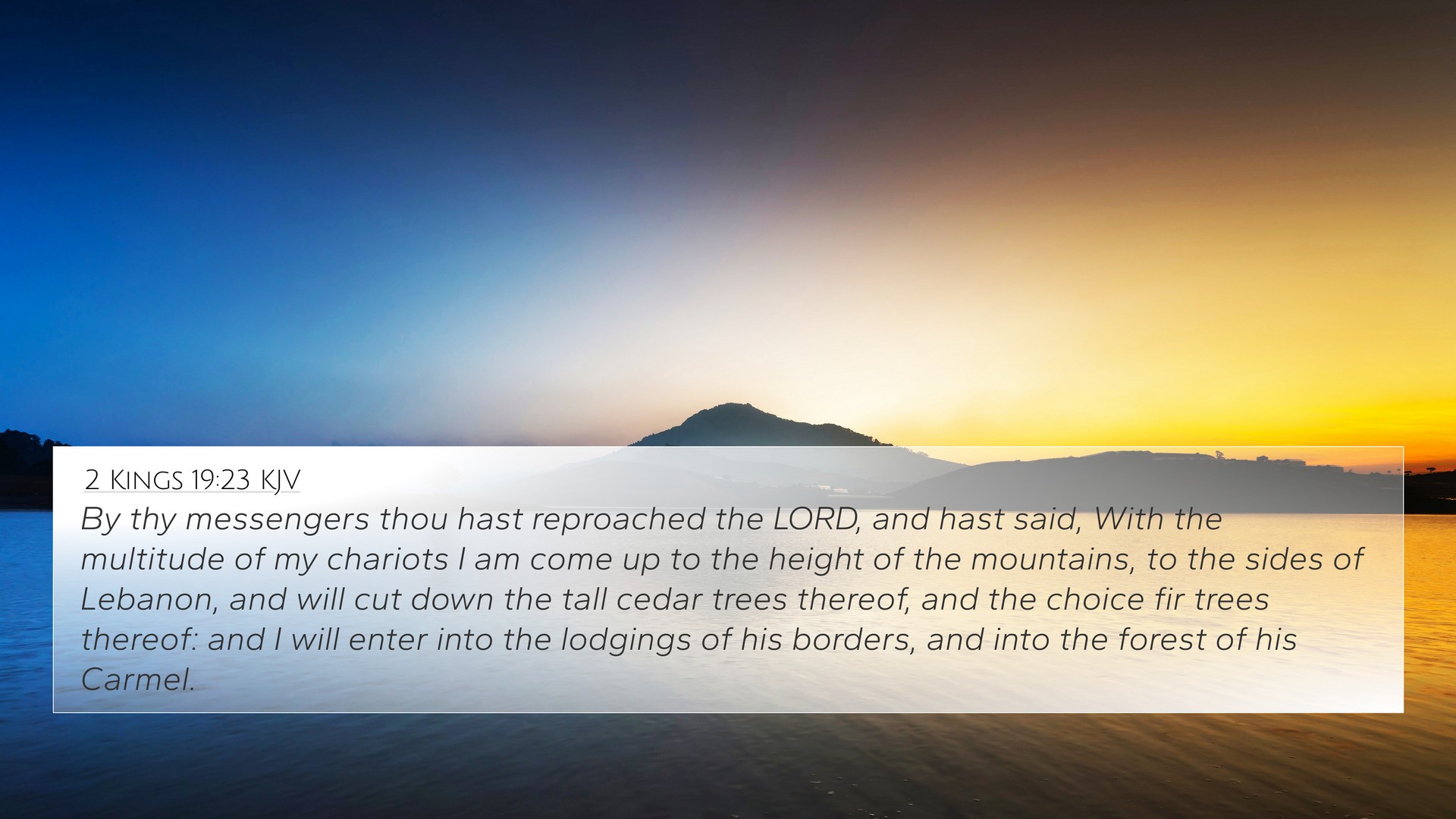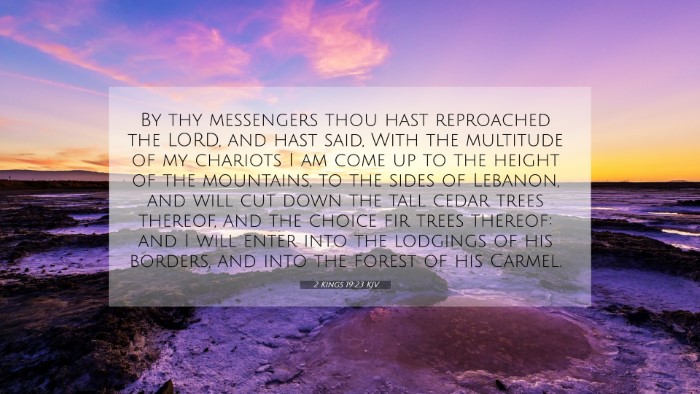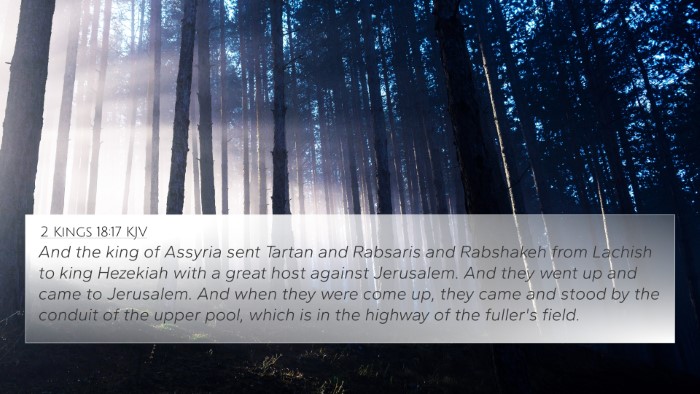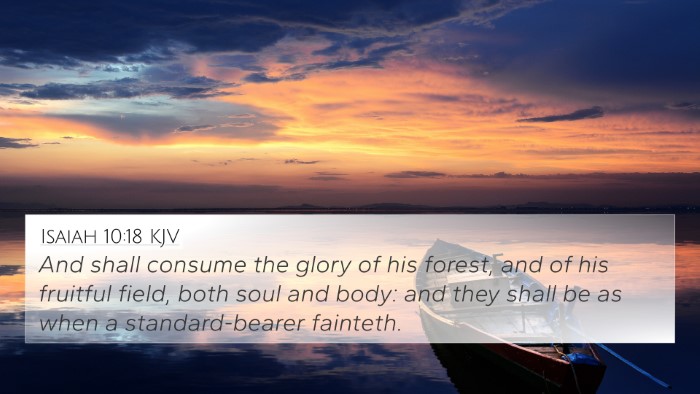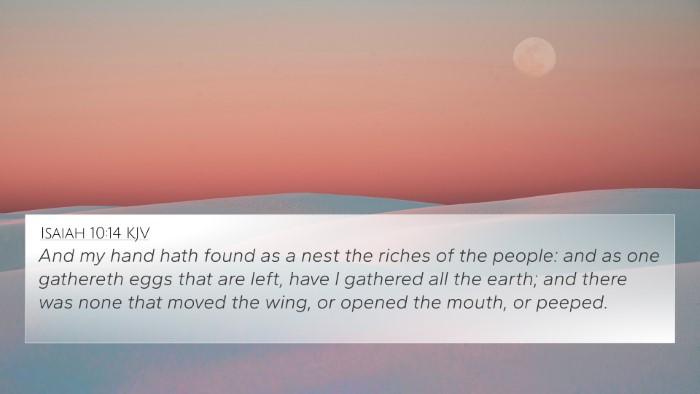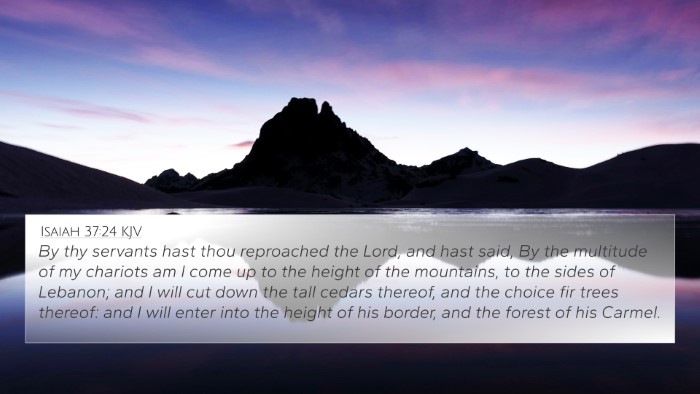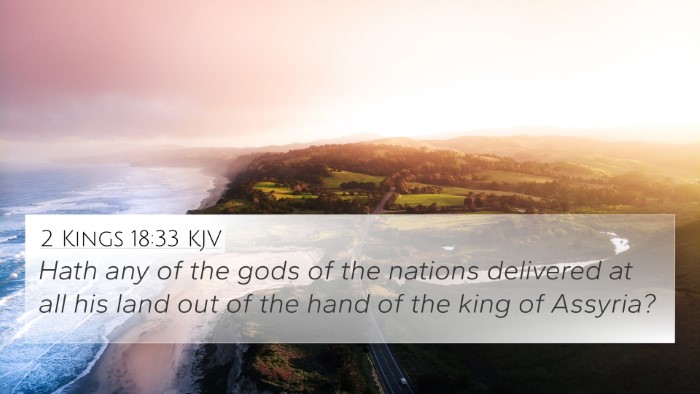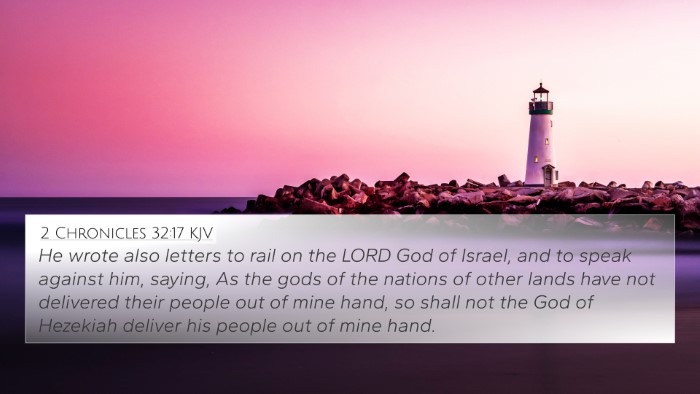Meaning and Interpretation of 2 Kings 19:23
Verse Context: 2 Kings 19:23 states, "By your messengers you have reproached the Lord, and have said: 'With my many chariots I have ascended the heights of the mountains, to the farthest heights of Lebanon. I have cut down its tallest cedars, the choicest of its junipers. I have reached its remotest heights, the finest of its forests.'" This verse is a proclamation of arrogance by King Sennacherib, king of Assyria, directed toward the Lord God of Israel.
Summary of Insights
This verse showcases the hubris of Sennacherib as he boasts about his military conquests and power, attempting to undermine the faith of the people of Judah. The verse presents a stark contrast between human pride and divine authority, encapsulating one of the major themes of scripture: God's sovereignty over nations and empires.
Commentary Insights
Matthew Henry
Human Pride: Matthew Henry highlights the folly of Sennacherib's arrogance, suggesting that those who elevate themselves against God will inevitably be brought low. He notes that by questioning God's might, Sennacherib positions himself as a fool, inherently vulnerable in his taunts.
Albert Barnes
Biblical Context: Albert Barnes emphasizes the historical context, revealing that Sennacherib's claims not only dismiss God's power but also serve as a declaration of war against divine authority. He points out the futility of opposing God and suggests that such boldness will lead to the king's downfall.
Adam Clarke
Spiritual Significance: Adam Clarke discusses the spiritual implications of challenges faced by God’s people. He interprets Sennacherib’s rhetoric as a deceptive strategy aimed at instilling fear among the citizens of Judah, demonstrating the need for faith amidst adversity and ridicule.
Cross-References and Thematic Connections
This verse echoes several themes and connections throughout the Bible that illustrate God’s control over worldly powers and the arrogance of men:
- Isaiah 10:12: God's judgment upon the Assyrians, highlighting the theme of divine retribution against prideful nations.
- Isaiah 37:23: Similar reproach and the consequences faced by the king of Assyria for his mockery of God.
- Psalms 2:1-4: The futility of peoples and rulers who oppose God’s purposes.
- Proverbs 16:18: "Pride goes before destruction," reinforcing the inevitable downfall of the proud.
- Jeremiah 50:29: God's judgment against proud nations, affirming that they will face consequences for their defiance.
- Daniel 4:37: The humbling of King Nebuchadnezzar as a warning against arrogance.
- Ezra 8:22: The reliance on God's protection instead of military might, a lesson for believers facing powerful adversaries.
Practical Application for Study
When studying 2 Kings 19:23, readers are encouraged to employ tools for Bible cross-referencing and thematic analysis. This approach will deepen understanding and illuminate the connections between biblical texts, allowing for enriched personal study or sermon preparation.
Conclusion
2 Kings 19:23 offers profound insights into the conflict between human arrogance and divine sovereignty. The verse serves as a reminder that boasting against God is ultimately fruitless, and such pride leads to ruin. Through cross-referencing, believers can better understand the intricacies of scripture and draw connections between the experiences of ancient rulers and their relevance today.
